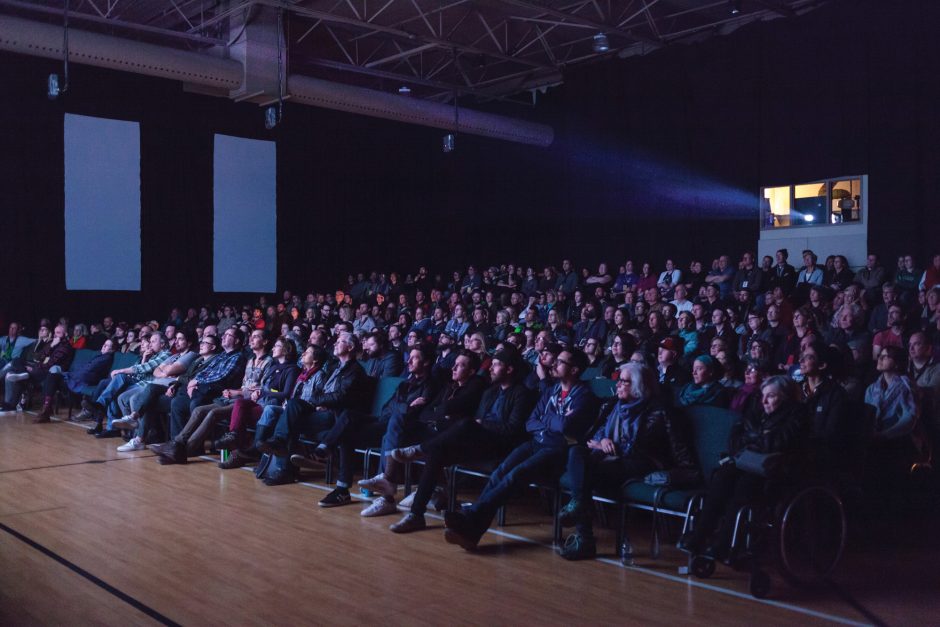
Published on Show Me Mizzou Jan. 10, 2024
Story by Marcus Wilkins, BA ’03
Photos courtesy True/False Film Fest
In March 2018, audience members exited Jesse Auditorium’s north doors into the unseasonably warm air blanketing the University of Missouri. It was closing night for the 15th edition of the True/False Film Fest, an annual jubilee of nonfiction cinema that, though not quite as historic as the nearby Columns, had become its own enduring symbol of Columbia’s penchant for cultural and artistic appreciation.
The final screening was Won’t You Be My Neighbor?, a critically lauded, heartstring-yanking documentary about children’s TV legend Fred Rogers. Attendees channeled Mr. Rogers’ trademark kindness with damp cheeks and warm grins, exchanging hugs while traversing Francis Quadrangle toward downtown drinks and discussion.
It was the type of crowd-pleasing film intentionally slated by the festival’s programmers to punctuate the four-day weekend of cinematic celebration. Yet the fest’s yearly run of films inspires a range of emotions for rapt audiences. Outrage, compassion, contempt, joy, motivation, wonder and inquisitiveness barely scratch the surface. True/False (T/F) films span the globe, zoom in on the microscopic, reach into the cosmos, elevate the arts, celebrate playfulness and harness the human spirit.
“It’s not that people necessarily need all of the films to be positive or upbeat — because that would feel fake — but that particular film really inspired hope,” says Arin Liberman, T/F executive director. “One of the moments that stays with me was Mr. Rogers’ line that whenever there’s a crisis, ‘look for the helpers.’”
Five years later, when a fire ignited in the second-floor T/F headquarters at 820 E. Broadway, that adage became especially poignant. No one was hurt during the Sept. 15 blaze, but the resulting smoke and water damage has shuttered the office — and Tellers, the adjacent restaurant — for the foreseeable future.
For T/F organizers still striving to reinvigorate post-pandemic attendance for the upcoming fest Feb. 29–March 3, 2024, the response to the setback highlighted the inseparable bond between festival and community.
City and campus venues including the Missouri Theatre, Tiger Hotel and Rhynsburger Theatre have hosted hundreds of screenings and ancillary events over the years. Cornerstone restaurants such as Sycamore, Shakespeare’s and Café Berlin serve the masses. The streets of Columbia themselves are transformed into galas and galleries. Major sponsors, including Showtime, the National Endowment for the Arts, National Geographic and Netflix have provided support. And perhaps most critically, about 600 volunteers — many of them Mizzou students and alumni — provide the muscle and machinations that power the documentary film celebration.
“One of the things that sets True/False apart is that it is distinctly ‘of’ a place,” says festival co-founder David Wilson. “In addition to its programmatic vision, it is deeply ‘of’ Columbia. We opened up aspects of the fest and Columbians, mid-Missourians, took it on, made it their own and have made it better than we could have imagined.”
Another lure for True/False was, of course, Mizzou. “It certainly wasn’t lost on us that the University of Missouri has one of the best journalism programs in the country, and there were a lot of people in town who would be interested in that aspect of documentary filmmaking.”
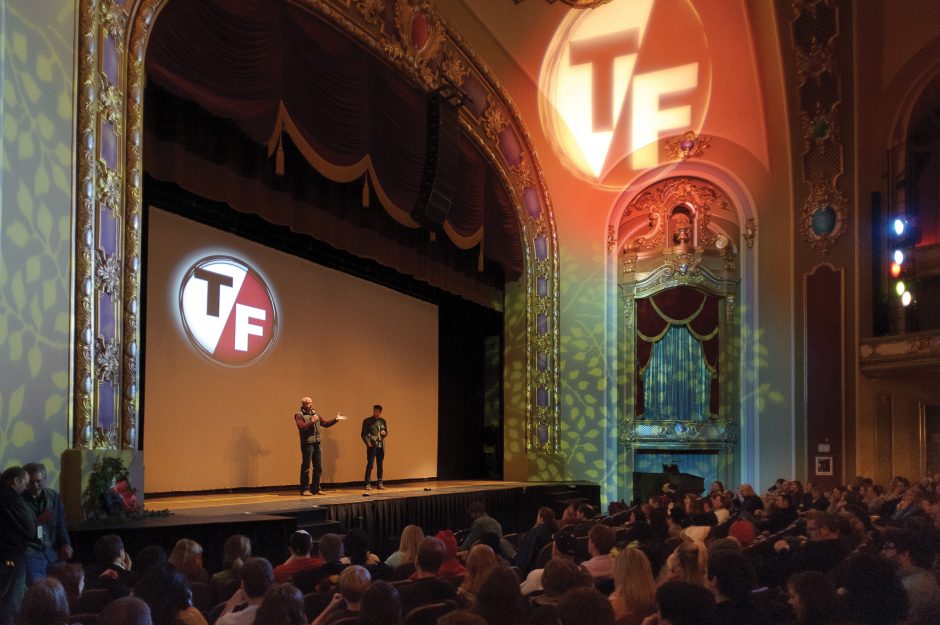
Paul and David vs. Goliath
Once upon a time, three years before the specter of the millennium threatened to seize our computers and halt civilization, Wilson met Paul Sturtz at the now-defunct downtown Columbia dance club Shattered.
Wilson was a punk-rock-loving townie, born and raised in Columbia and back home after earning a degree at Hampshire (Massachusetts) College. Sturtz was an Oregon transplant, a journalist with eclectic tastes and a passion for nonfiction storytelling. The two became fast friends, a dynamic duo that would soon change the college town’s arts landscape.
“I’d never been to the Midwest, and I had this romantic idea of wide-open spaces and big prairies,” Sturtz says. “My partner and I were raising a 2-year-old, and I thought I’d get a library degree and work at The New York Times or someplace where my research and reporting would be an asset.”
Sturtz soon conceived of the Ragtag Film Society, a film series at the Blue Note that spawned the brick-and-mortar Ragtag Cinema. The theater-café hybrid became an oasis infusing Columbia with international and underground films galore. The local appetite was insatiable, and downtown seemed to be a perfect incubator.
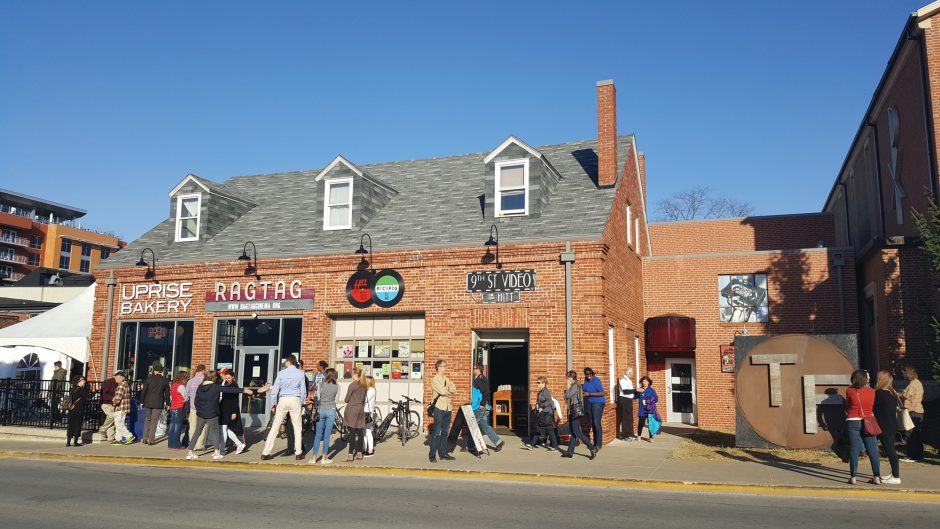
“Growing up in Columbia, that spirit was hard for me to see because it was already a part of my DNA,” Wilson says. “Not only did I come from a family that had a tradition of starting things — a mental health center and community theater — but my friends were also starting bands, zines and music venues.”
In what was a pivotal period for documentary film, the early 2000s produced international hits including Bowling for Columbine, Winged Migration and Capturing the Friedmans. Documentary was becoming more mainstream. Sturtz and Wilson thought the time was ripe for their next big idea.
“These were movies that wanted to be seen in a theater, with other people, and discussed,” Wilson says. “Suddenly, documentaries didn’t have to be pedantic or ‘good for you.’ They could be just as thrilling, interesting and character-driven as fiction films.”
It also helped that nonfiction films are budget-friendly and accessible in a way that most Hollywood films aren’t. The pair set out to assemble a list of films and launch the inaugural fest in 2004. But first, it needed a name.
“We were brainstorming, and there were a lot of bad ones, like ‘Doc Doc Goose,’” Sturtz says. “David sketched the T and the F with the slash between, and then we started adding circles radiating out. It just captured our imagination from the get-go.”
Robert Greene, Mizzou’s filmmaker-in-chief at the MU Jonathan B. Murray Center for Documentary Journalism (see sidebar, Page 27), was a burgeoning New York artist in the mid-2000s when the fest’s logo caught his eye on a friend’s hoodie. Greene has since shown five feature films at the festival: Actress, Bisbee ’17, Fake It So Real, Kate Plays Christine and Kati with an I.
“True/False is so good at turning every screening into an event,” Greene says “There’s music playing, there is a host, and it just feels like art matters, stories matter, human beings matter and the vibe matters.”
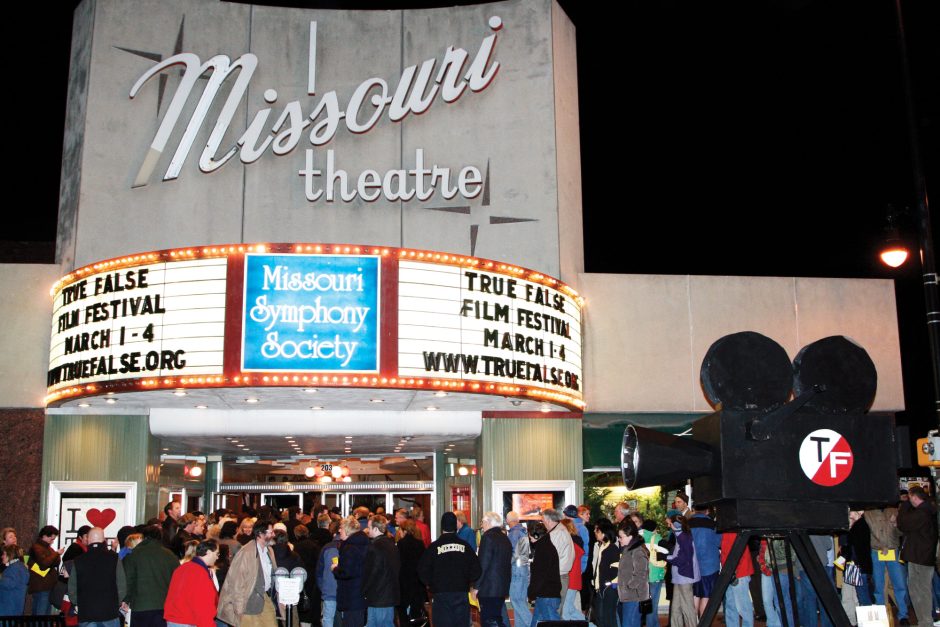
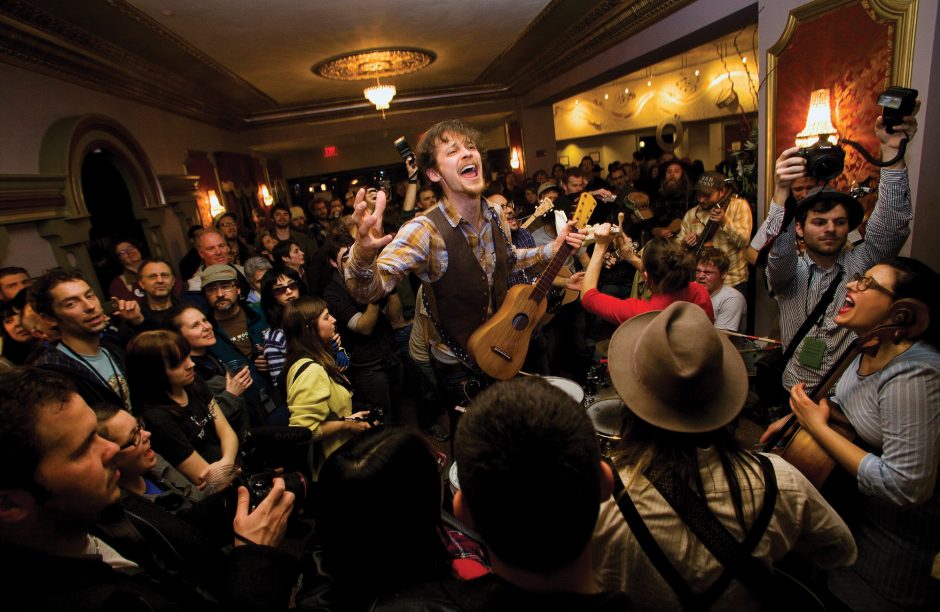
The first film shown at T/F was Touching the Void, a harrowing true story about a pair of mountain climbers’ perilous journey in the Peruvian Andes directed by Kevin Macdonald. When the final credits rolled, the packed house filled the Missouri Theatre with a raucous standing ovation.
The inaugural fest featured 49 films, a number that would eventually settle around 60. During year two, more than 50 international filmmakers accompanied their movies to mid-Missouri, and by 2007, festival attendance neared 15,000. Big-name directors, including Oscar winner Alex Gibney (Taxi to the Dark Side), became regulars.
“This is my first stop after that event in Hollywood,” Gibney told a Columbia audience after accepting the 2008 T/F True Vision Award, a prize given for the advancement of nonfiction filmmaking. “I looked at [the Academy Awards] as a warm-up to True/False.”
For director AJ Schnack, BJ ’90, every trip to Columbia was a homecoming. When About a Son, his film about Nirvana front man Kurt Cobain, landed at T/F, he saw the local landscape through a different lens. “Many filmmakers found the T/F audiences to be among the best in the country, particularly for documentary-focused festivals,” Schnack says. “Someone will come up to you at Shakespeare’s two days later and say, ‘Hey, I saw your film and it really stayed with me.’” Schnack teamed with Wilson to direct the 2013 film We Always Lie to Strangers, about the lives of Branson, Missouri, entertainers.
For Sturtz and Wilson, the dream had been realized. Every February, the crisp Columbia air had been abuzz in anticipation of a new slate of films. Fans elsewhere had begun scheduling annual vacations to return, and locals would plan staycations to fully absorb the four days of revelry.
“Filmmaking partnerships and lifetime friendships were forged,” Sturtz says. “There was this magical moment in time where everything came together in a beautiful way with True/False.”
Marching Hand-in-Hand
For a film festival to be successful, meticulous and unwavering attention must be paid to the selection of films. “Programmatic vision” is often cited when organizers describe what separates T/F from other international festivals, and the breadth and depth of the screening schedule never disappoints.
But it’s possible the festival’s endurance can also be attributed to the surrounding events, entertainment, arts and activities that weave color and life into the hours spent in dark theaters.
The festival kicks off with a parade, something the city of Columbia does well. Resplendent with wild costumes, handmade decorations, provocative signage and a cacophony of percussive clangs, the March March rings in the new festival and ramps up the town’s collective joy as it elbows from Walnut down Ninth Street toward Mizzou.
“This is a festival that’s very interested in the little details, which other festivals might overlook,” says Chloe Trayner, T/F artistic director. “I inherited a philosophy of radical hospitality from David and Paul, and for me, that is a key part of why True/False is special. Filmmakers love showing their work here, and even when they don’t have something to show, filmmakers still flock to True/False because of the feeling of being in this place, having this incredibly immersive experience.”
Buskers are omnipresent in venues and throughout the streets of downtown, crooning and plucking while attendees settle in their seats. Those glowing, elaborately dressed royals you see dispensing smiles and information? They’re Q Queens, hostesses of a T/F system that allows patrons a chance to see sold-out films by lining up 15 minutes before showtime.
“Flamboyant,” says Carolyn Magnuson, PhD ’81, T/F’s longest-serving Q Queen. “That was the only costume instruction we were given. There’s a wonderful and diverse array of Queens who dress however we want. There’s even someone who dresses as a warlord.”
Sturtz adds: “Columbia isn’t an expensive city, so you get this great volunteer energy without people looking at their watches thinking they just gave away $50 when they could’ve been working. Downtown is also walkable, meaning the fest doesn’t get absorbed or obliterated by a massive city — which happens in New York. True/False takes over downtown Columbia.”
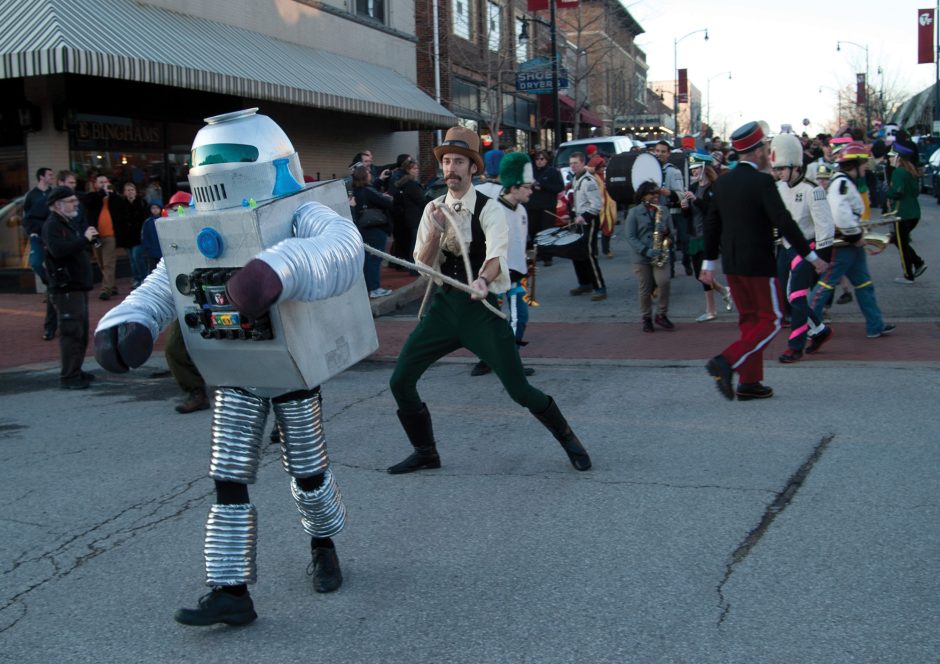
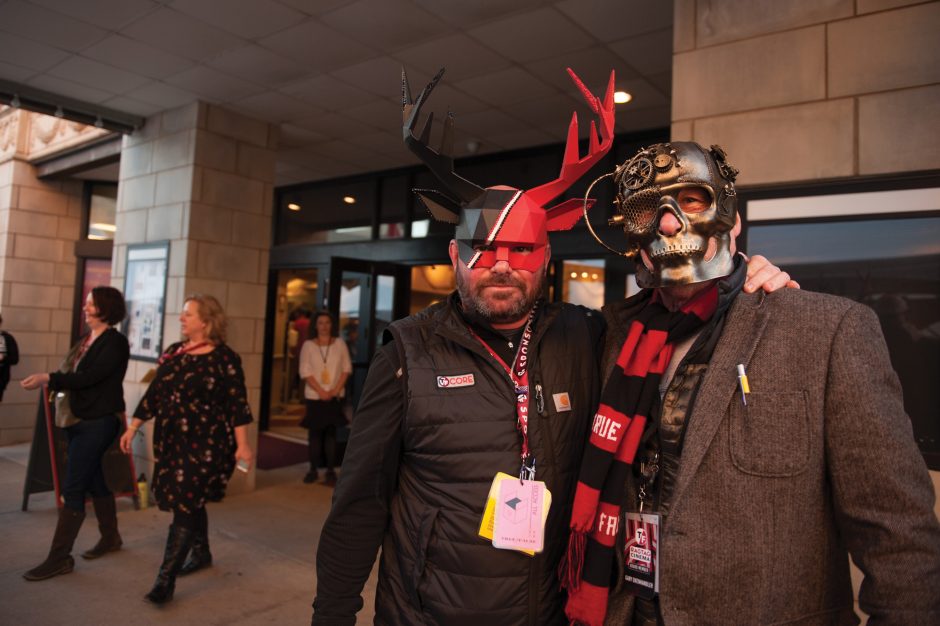
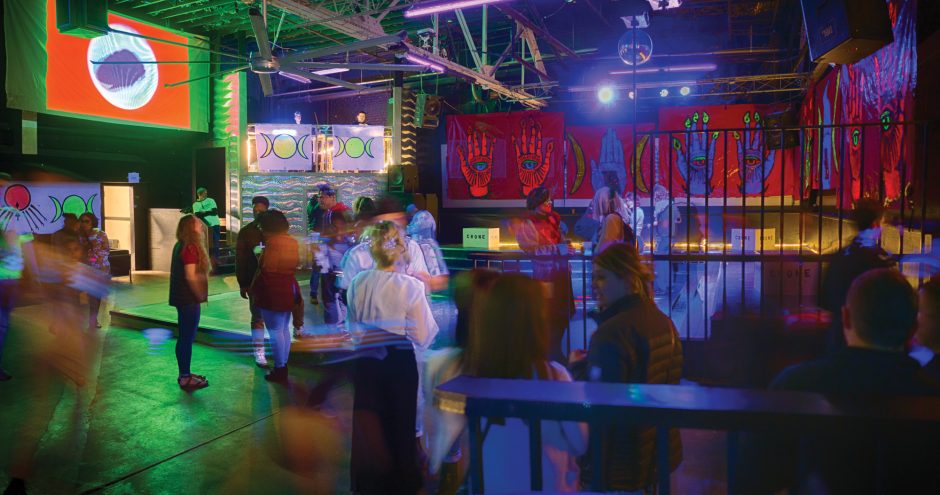
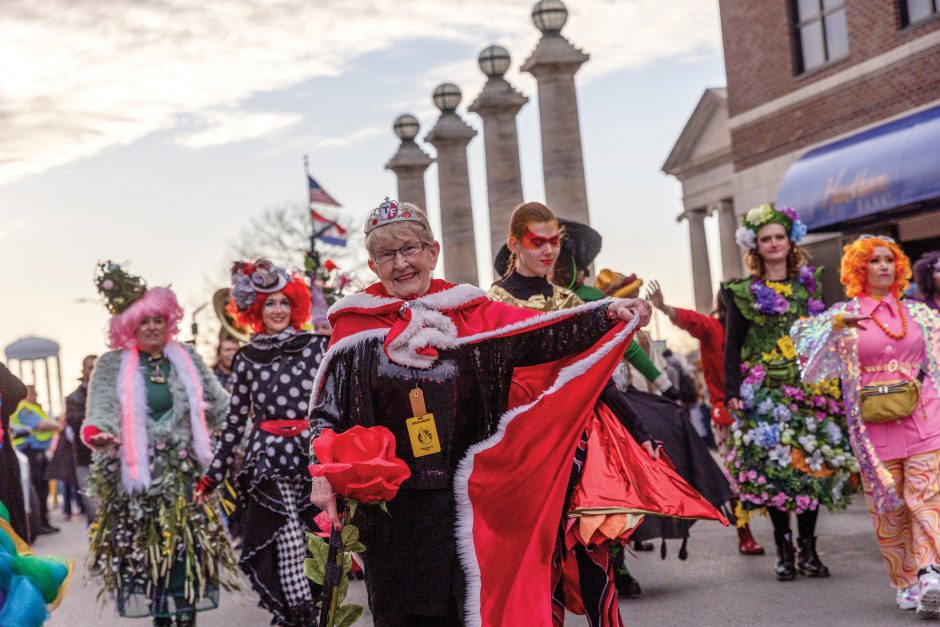
T/F organizers are relying on that energy as they rebuild in a post-pandemic landscape. The film business has been waylaid by moviegoers’ reluctance to return to theaters with the same regularity, a reality that has hit festivals particularly hard.
The World Health Organization publicly characterized COVID-19 as a pandemic on March 11, 2020, three days after that year’s festival for which 46,600 tickets were sold. Although the following year was devastating, the timing gave organizers the maximum window to prepare for the 2021 outdoor and virtual version of the fest — a significantly reduced affair bumped out to May and mostly confined to Stephens Lake Park. But despite T/F 2021’s relative success (9,500 tickets sold), sales haven’t bounced to pre-pandemic levels. There were 21,300 tickets sold in 2022 with only modest gains in 2023 (28,900).
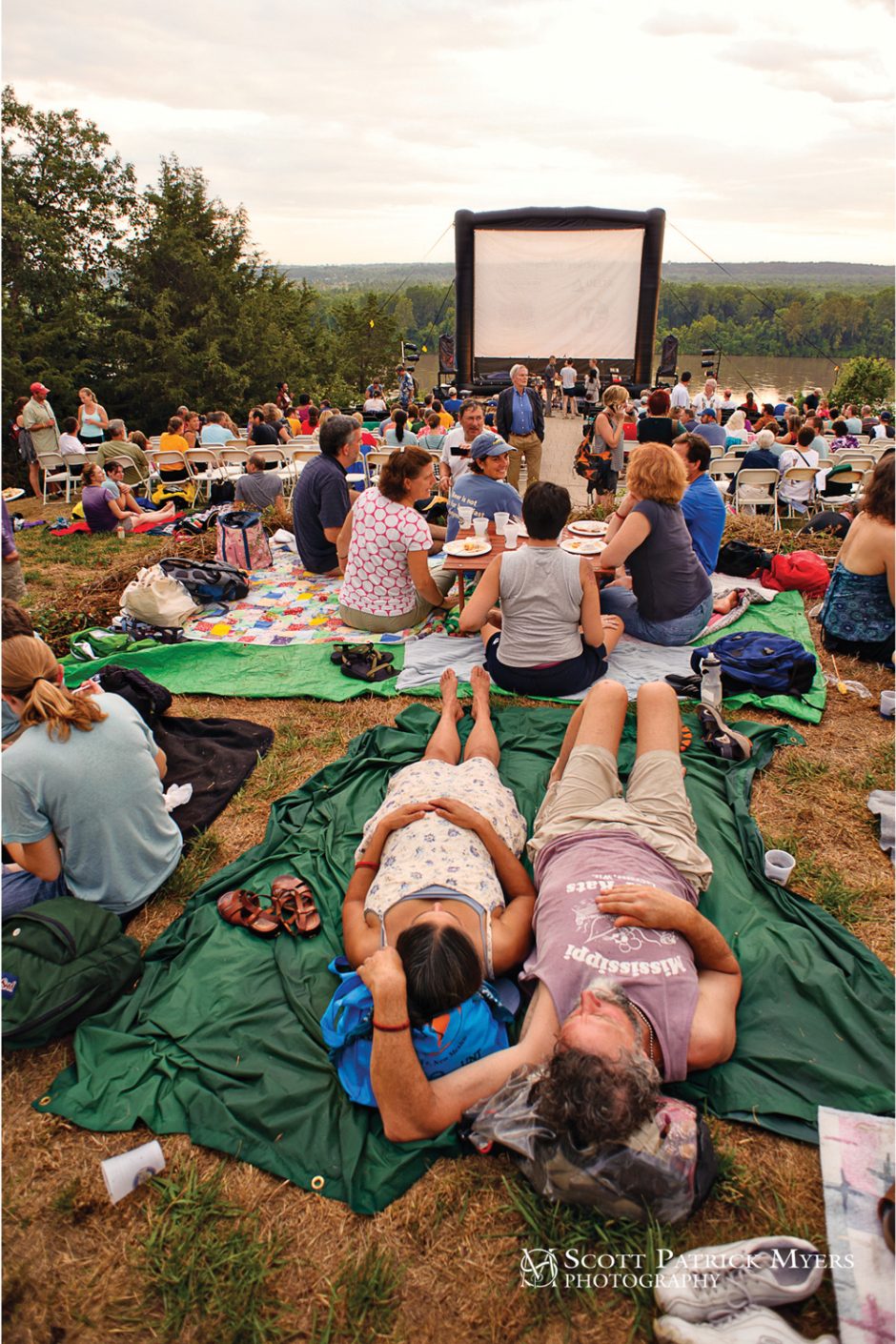
“Everyone’s habits suddenly shifted during the pandemic,” says Liberman, who also serves as the Ragtag Film Society’s executive director. “People had subscribed to more streaming services — which, of course, now they had to use to justify the expense — and parents lost touch with their babysitters. When things opened back up, it wasn’t as simple as: ‘We can go back to the movies? Great, let’s go!’”
As Columbia’s international film festival looks for temporary headquarters and recovers from the $75,000 in fire
damage — including destroyed computers, projection equipment, office supplies and furniture — the team again looks to the community. They’ve set a goal of $10,000 toward recovery (contribute here) and continuing to bring the best nonfiction cinema to Missouri.
“True/False, at its heart, is a film fest and always will be,” Wilson says. “It is also a music fest and a visual arts fest.”
Wilson adds that while he’s enormously proud of True/False: “I try to keep my role in perspective. I worked really hard on it, and I’m proud of that work, but a lot of people worked really hard on it. It feels like its successes are the
successes of a community.”
2024 True/False Film Fest
When: Feb. 29–March 3, 2024
Price: Weekend passes range from $135-$995
More info: truefalse.org
To read more articles like this, become a Mizzou Alumni Association member and receive MIZZOU magazine in your mailbox. Click here to join.



